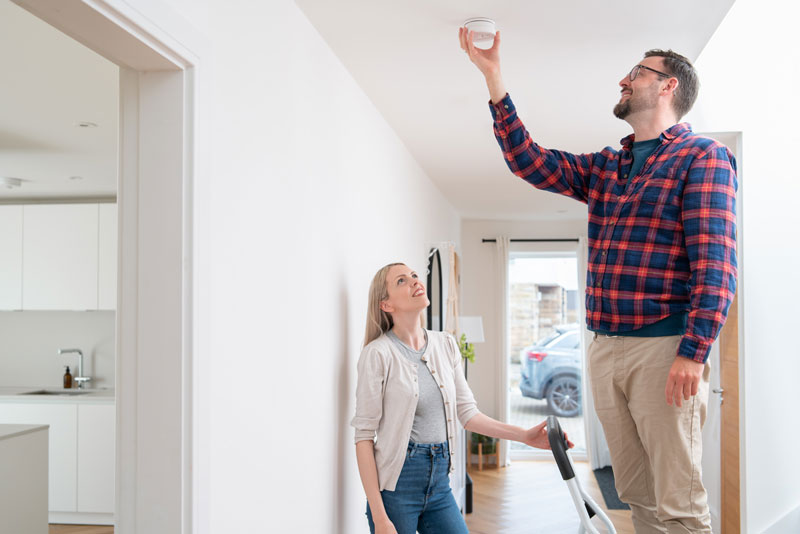
Should you Have a Smoke Alarm or Heat Alarm at Home?
Fire safety at home is a main concern for homeowners, renters, and dwellers. And cooking can be a main cause for concern as there are lots of opportunities for accidents to happen. As detailed in our latest blog, it's important for homes to have fire detection devices to ensure that you can be alerted, if the worst happens. One thing that has often caused confusion, though, is should you have a heat alarm or smoke alarm. And what is the difference?
What alarms do you need in your home?
The short answer is that you should have both a smoke alarm and a heat alarm in your home. They work in slightly different ways to protect you from fire and prevent false alarms as much as possible.
You should have a heat alarm in your kitchen or bathroom, while you should have a smoke alarm in any other area where a fire could occur, like bedrooms, hallways, or living areas. But why is that?
Smoke alarm or heat alarm: the differences
Smoke alarms and heat alarms can work concurrently to protect you and your home. The alarms are suited to different environments and combine to provide an effective fire alert system.
Smoke alarm
A smoke alarm works by detecting smoke in a room, as the name suggests. It is suited for areas in your home where a fire could break out. There should be more than one in your home if you have multiple rooms and spaces. Some alarm systems allow you to interlink alarms to all sound if a fire is detected in one room.
A smoke alarm is not, however, suited to areas that can produce steam such as your kitchen or bathroom. A kettle or toaster can set off smoke alarms and cause false alarms, possibly causing distress to both humans and animals.
This is where a heat alarm comes into play.
Heat alarm
Heat alarms detect a change of temperature in a room, sounding the alarm when the temperature reaches the dangerous levels of a fire risk.
They are suited for kitchens and bathrooms, where smoke alarms can be less effective.
The extreme heat of a fire will trigger a heat-sensitive element within the heat alarm. This is highly effective in the recommended areas but can provide less time to act in other areas of the home than a traditional smoke alarm.
Staying fire-safe at home
Having a fire alarm or system in your home is vital to staying fire-safe. The majority of us will hopefully never need to use it but it can, and does, save lives.
If you'd like to know more about staying fire-safe at home, head to our Home and Leisure website to find out more.
The Firechief range includes high-performance fire extinguishers, fire blankets, first aid kits, lithium-ion fire extinguishers and the Kitchen Stove Guard. For more information, call us on +44 (0)330 999 0019 or email sales@firechiefglobal.com.
The information contained within this blog is provided solely for general informational and educational purposes and is not intended as a substitute for professional advice. Before taking any actions based upon this information, we advise the reader to consult any and all relevant statutory or regulatory guidance and where necessary to consult a qualified fire or industry regulation professional. The use or reliance on any information contained herein is solely at the reader's risk.

